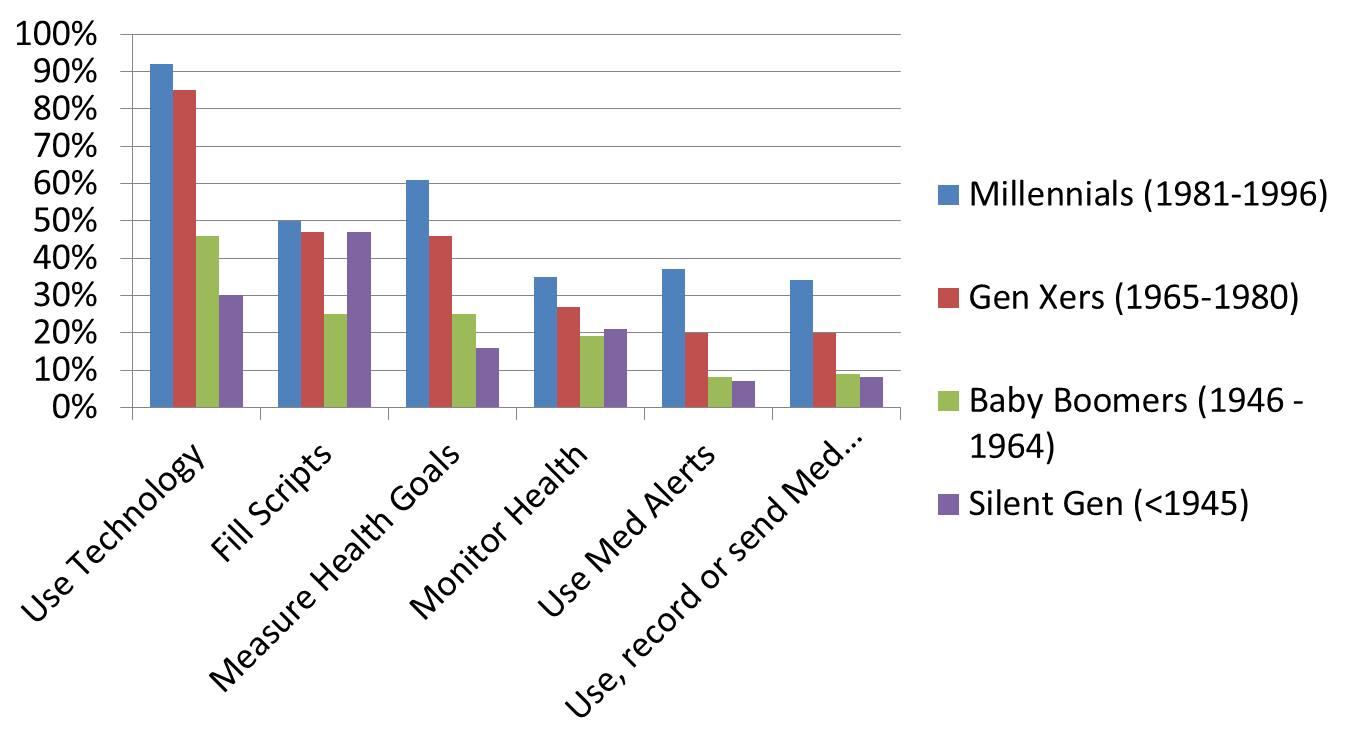In exasperation and lacking dexterity, my index finger pecks across my smartphone’s keyboard in response to three rapid fire texts from my kids. My Baby Boomer brain and arthritic hand can’t compete with their millennial swiftness in texting. But I love and use my iPhone, iPad and Kindle daily! My kids smirk with how long it takes me to respond to their texts.
See, Millennials were born into technology. By age three, according to The Netmums.com survey in 2013, children begin using these tools. And they don’t quit. My kids were involved in technology that early. I, on the other hand, was married and well into my twenties before personal computers and cell phones were even available. Now, these are my survival tools for banking, shopping, information, social media, business and pleasure.
What is the issue?
The learning curve difference for adopting technology is skewed among four generations: Millennials, Gen Xers, Baby Boomers and the Silent Generation. The three older generations are still skimming the surface of how to use technology to positively impact their lives. Think about the Silent Generation – our Baby Boomer parents whose exposure to cell phones began in their sixties. I know it took my parents months to figure out how a new phone works.
According to Pew Research Center, “Millennials stand out for their technology use but older generations also embrace digital life. The Deloitte Center for Health Solutions, surveyed 4,530 adults and the image below details their responses on ways Americans use Medical Technology.
As you can see, while each sector is using medical technology to enhance their lives, the Gen Xers, Baby Boomers and Silent Generation trail because their exposure to technology started later in life.
Embracing the technology bubble, I’ve personally and professionally found the older generations are less enthusiastic about using alternative methods of medical care (like telemedicine) in exchange for the traditional face-to-face doctor/patient interactions. I recall attempting to explain Telemedicine to a State Regulator for one of our Work Comp Managed Care Organization (MCO) filings, and the regulator who was likely well into the Silent Generation was skeptical whether injured workers would welcome using a phone instead of sitting in a doctor’s office.
After canvassing friends and neighbors of similar ages, the Silent Generation indeed seems less interested in exploring further technological options unless it becomes the only option available. I continue to watch as my kids advance in this tech savvy world and monitor my parents as they struggle with adopting to the new technology. As Grandpa imploringly holds his hand outstretched with his phone asking my kids to show him how to post something on Facebook again or download a picture, perhaps it’s not that this generation lacks interest in these amazing new tools but rather they are unable to easily and quickly adapt, understand and use the technology. Defining clear benefits and offering more targeted instructions may positively increase the percentage of use for these groups.
Written by Karen Weitendorf, Coventry’s Director of Workers’ Compensation Networks & MCO Implementations



